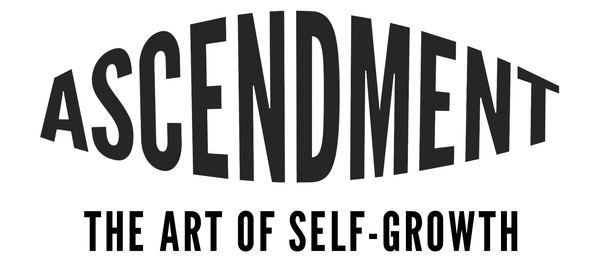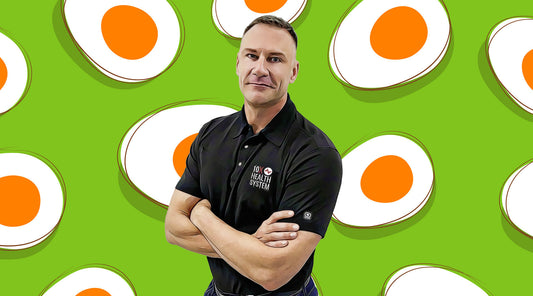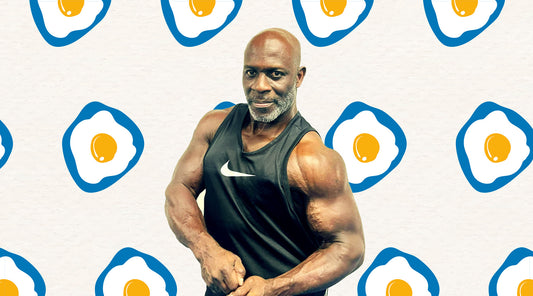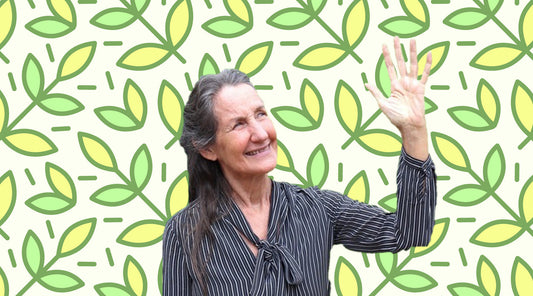Dr. Mark Hyman is known for his functional medicine approach. He emphasizes the power of food as medicine, encouraging people to fuel their bodies with nutrient-dense whole foods. His approved food list reflects this philosophy, focusing on high-quality ingredients that promote optimal health, reduce inflammation, and prevent chronic disease.
If you’re looking to adopt a healthier lifestyle, Dr. Hyman’s food list serves as a practical guide to clean eating. From colorful vegetables and healthy fats to lean proteins and low-glycemic fruits, each item on his list is carefully selected to nourish the body and support long-term wellbeing. In this post, we’ll break down the main components of Dr. Hyman’s recommended diet before listing the specific foods he recommends.
Mark Hyman’s Diet
Mark Hyman, M.D., is an American physician and a well-known advocate of functional medicine, which emphasizes addressing the root causes of disease through personalized treatment, often focusing on diet, lifestyle, and nutrition.
He is the founder and senior advisor for the Cleveland Clinic Center for Functional Medicine and the founder of The UltraWellness Center. Hyman has authored numerous best-selling books on health, nutrition, and wellness, including The Blood Sugar Solution, Food: What the Heck Should I Eat?, and The Pegan Diet.
Hyman frequently discusses topics such as the role of food in chronic disease, the importance of gut health, and the benefits of whole foods and a balanced lifestyle. He also hosts The Doctor’s Farmacy podcast, where he explores various health-related subjects with experts in the field.
The physician has crafted a diet through his studies, work and personal experiences that he believes optimizes his health and wellbeing as well as helping to prevent chronic illnesses.
When describing his diet, Mark Hyman says: “I eat a very nutrient dense diet. It’s a low glycemic, meaning low sugar and starch diet. It’s high in phytochemicals – all those colorful plant compounds that have medicinal value. It’s high in fiber to feed my microbiome. I have good fats and also the right amount of high quality protein.”
Focus on quality
Mark Hyman suggests that one of the most important things we can do to improve and optimize our health is to focus on eating a diet that consists of high quality foods.
He says: “The quality of the ingredients, the quality of the nutrients, the quality of the food you're eating matters so much.”
It’s important that we all become more mindful of the ingredients in food products and to develop your knowledge of potentially harmful ingredients. This will give you a better understanding of the ingredients to avoid when you read ingredients lists on products in the grocery store.
It’s also important to analyze the conditions the food has been grown or reared in as this effects the quality of food. Mark Hyman recommends going organic where possible.
He says: “Try to choose organic or Regenerative when possible, use the Dirty Dozen guide and the Clean 15 guide from the Environmental Working Group. You'll learn all about which foods you want to stay away from that are the worst contaminated. For example, don't ever eat strawberries unless they're organic.”
The physician strongly recommends avoiding ultra-processed foods which can lead to obesity and chronic disease. He says: “Whatever you’re eating try to get the highest quality, most nutrient dense food you can. And obviously that means no ultra-processed food.”
Eat a plant-rich diet
Mark Hyman does not eat a vegan diet, however a lot of his diet consists of plant-based foods. He recommends incorporating a considerable amount of plant foods into your diet due to them containing a lot of compounds that are beneficial to our health.
The physician says: “I eat lots of plants. I eat a plant-rich diet not a plant-based diet. Plant-based means 100% vegan – I’m not vegan. You can be but it’s problematic if you don’t do it carefully and you don’t supplement.”
Vegetables are packed with a variety of beneficial compounds that support overall health. They include vitamins, minerals, fiber, antioxidants and phytonutrients.
Mark Hyman explains: “There’s a lot of compounds in these plant foods that are super medicinal and have longevity benefits.”
He continues “Make sure you eat foods that are full of phytochemicals – lots of colorful plant foods with anti-inflammatory, detoxifying, hormone balancing, energy busting, gut healing compounds.”
The physician states that 75% of your plate should consist of vegetables or plant foods, mostly non-starchy ones, when eating a meal.
Choose low-glycemic fruit
The American physician incorporates fruit into his daily diet, focusing on fruits that are low glycemic. Low glycemic refers to foods that have a low impact on blood sugar levels when consumed. These foods help maintain steady energy levels, reduce hunger cravings, and improve overall metabolic health.
Mark Hyman explains: “I also eat foods that are low glycemic – so low glycemic fruits like berries, kiwis and so forth. Try to stay away from pineapples and melons and really sugary fruits like bananas. It’s not like you can’t have them but they’re more likely to spike your sugar.”
A sprinkling of spice
In addition to eating plant-based foods and low-glycemic fruit, Mark Hyman includes plenty of herbs and spices in his diet due to them including compounds that have numerous health benefits.
He says: “I also include lots of herbs and spices because they’re really important…they have a lot of phytochemicals in them like curcumin, pepper, all sorts of wonderful compounds.”
Healthy fats are vital
Mark Hyman believes that healthy fats are a major component of a balanced, health-optimized diet. In the past, fats have been heavily criticized my medical professionals but it is becoming widely accepted that the category of fats referred to as “healthy fats” are important for the body to function well.
The physician explains: “Fat used to be the bad guy – turns out it’s not the bad guy. It’s not the fat that’s making you gain weight – it’s the sugar and starch.”
He focuses on eating foods that contain healthy fats and says: “I eat lots of healthy fats like extra virgin olive oil. You can use that as much as you want. I go through a bottle a week probably. Nuts and seeds, avocados, grass-fed meats, omega-3 rich foods are all really good for you and essential. You need the right fats.”
What about meat?
Dr. Mark Hyman does recommend eating meat, but with a focus on quality and sustainability. His approach encourages eating meat that is grass-fed, pasture-raised, and regenerative when possible.
He says: “Should we be vegan? Should we be carnivores? Should we be paleo? We do need protein, and we need animal protein, especially as we grow older to build muscle.”
The physician refers to muscle mass as “the currency of longevity” and believes that animal protein is one of the best sources of leucine, which is an amino acid that helps to build and maintain muscle.
Mark Hyman explains: “If you don’t have enough protein in the right forms with the right amount of leucine, which is a very important amino acid to build muscle, you will lose muscle as you get older. If you see people who are vegan as they're older, they tend to be more frail, more thin, with less muscle mass. Muscle mass is the currency of longevity, so you want to make sure you maintain and build muscle as you get older.”
He continues: “This doesn’t mean you have to eat 20-ounce steaks, but you do need around 30 grams of protein, which isn’t much—about a palm-sized piece of protein or its equivalent at each meal.”
When buying meat, the physician emphasizes the importance of quality once again. He says: “Make sure you're using regenerative meat if you can… or if you can get grass-fed, pasture-raised, organic when possible.”
Dr. Mark Hyman also recommends incorporating small, fatty fish into your diet. Fish like sardines and mackerel, are rich in omega-3 fatty acids, which support heart health, reduce inflammation, and promote brain function while being lower in mercury compared to larger fish.
He says: “When you also look at fish consumption in addition to meat, it's a great source of protein, but I would stick with the small fatty fish—sardines, herring, anchovies, mackerel, and small wild salmon. They’re high in Omega-3s and low in mercury.”
Mark Hyman’s Approved Food List
Mark Hyman recommends eating high quality whole foods. Here’s a comprehensive list of the foods he recommends to optimize your health and help to prevent chronic disease:
- Spinach
- Kale
- Swiss Chard
- Broccoli
- Cauliflower
- Brussels Sprouts
- Zucchini
- Bell Peppers
- Asparagus
- Beets
- Tomatoes
- Carrots
- Arugula
- Olives
- Avocados
- Cucumber
- Kiwi Fruit
- Frozen Blueberries
- Strawberries
- Raspberries
- Blackberries
- Shiitake Mushrooms
- Grass-Fed Beef
- Pasture-Raised Chicken
- Wild-Caught Salmon
- Lamb
- Bison
- Venison
- Mackerel
- Sardines
- Herring
- Anchovies
- Pasture-Raised Eggs
- Purple Sweet Potato
- Heirloom Grains
- Himalayan Tartary Buckwheat
- Macadamia Nuts
- Almonds
- Walnuts
- Pecans
- Hazelnuts
- Pine Nuts
- Pumpkin Seeds
- Hemp Seeds
- Chia Seeds
- Sesame Seeds
- Coconut Oil
- Extra Virgin Olive Oil
-
Avocado Oil
- Coconut Butter
- Grass-Fed Butter
- Grass-Fed Ghee






